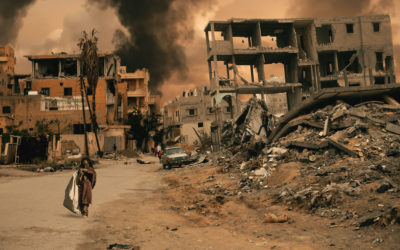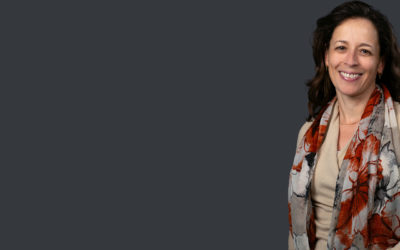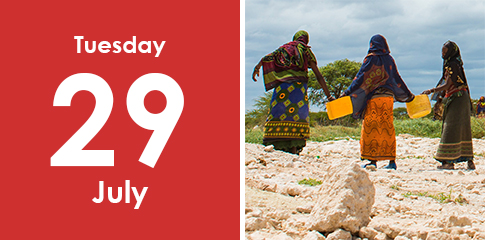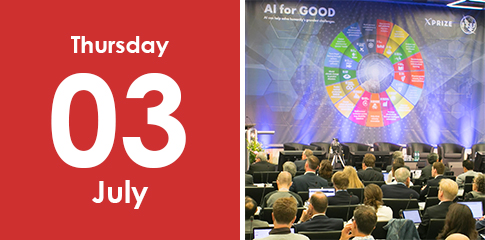Includes the expertise and insights of Tammam Aloudat, Co-Director of the Executive Certificate on the New Diplomacy of Global Health, the Graduate Institute Geneva.
Decolonisation – it’s a word we’ve been hearing quite a lot over the last couple of years. From France returning art to the African nations it was originally looted from, or students in the UK demanding the removal of statues of British colonialist and founder of Rhodesia Cecil Rhodes, former colonial powers and their citizens are re-assessing what having an empire meant, and how it influences our policies and attitudes today.
Here in Geneva, the humanitarian community has joined the debate, asking if aid policies, and our very thought processes around humanitarian aid, need to change. Who decides what aid programmes will operate and where? Whose advice is consulted? Who’s in charge of those programmes? And are historic preconceptions and assumptions informing those decisions?
It’s an intense, sometimes difficult, debate, so we decided to tackle it on this week’s Inside Geneva podcast, where we talk to two people who have already written extensively on the topic.
Lata Narayanaswamy, associate professor of the politics of global development at the University of Leeds in the UK, believes putting a decolonisation lens onto humanitarian aid can only be beneficial.
“The key is about embracing a more diversified way of understanding our world,” she tells Inside Geneva. “And that includes an engagement with our shared colonial past.”
And Tammam Aloudat, who spent many years with the medical charity Doctors Without Borders (MSF) and is now managing director of Geneva Graduate Institute’s Global Health Centre, has come to believe that that colonial past informs much humanitarian policy today.
“The behaviour and influence that has resulted from those 500 years of colonisation remains,” he says.
Covid imbalances
Both Lata and Tammam point to the Covid-19 pandemic as a prime example of how a colonial past is still determining the global haves and have-nots. Superimpose a map of the British empire over a map of the countries which have, so far, received the fewest vaccine doses, and the two maps are an uncanny match.
Despite the pleas of the World Health Organization for vaccine equity, wealthy countries bought up millions of doses at market prices, leaving poorer nations without. Now, Tammam suggests, those same rich countries want to look like “the good guys” by hiring planes to deliver their almost expired surplus vaccines to low-income countries who have been waiting a year.
COP26 is another such example, believes Lata. The disapproval directed at China and India for their demand to “phase down” rather than “phase out” coal ignores the fact that the industrialised world’s wealth is built on centuries of burning fossil fuels with impunity. That’s not to say our podcast panellists argued for keeping coal – but they did suggest developing countries’ request for support to move away from fossil fuels while still growing their economies was legitimate.
Gifts or payback?
But that brings us to one of the key questions about humanitarianism: what is it exactly? Our language around it generally frames it as a gift, a donation, charity. Lata Narayanaswamy thinks we need to change our language, and with it our way of thinking. Poor countries are very often poor, she argues, because rich countries got rich at their expense.
Our approach to humanitarian and development work would be much improved, she argues, “if we were to think of aid as a form of reparation, as a form of social justice for continuing and historical harm”.
And that’s where it gets difficult, as our Inside Geneva analyst Daniel Warner points out: “You want me to pay reparations? I wasn’t born in the 19th century. My background is not in empire.”
It’s a question likely to be asked by many ordinary citizens of wealthy countries, some of whom suffered years of austerity following the financial crisis of 2008 and are now facing fresh economic uncertainty because of the pandemic.
Of course there are multiple valid arguments against the “it’s us or them” position, not least the fact that preventing or relieving humanitarian crises promotes global peace and stability.
What needs to change?
So if we accept humanitarian aid must continue, how should it change? “What,” our analyst Daniel Warner asks, “do we need to do on Monday morning?”
In fact, despite Lata and Tammam’s calls for a radical approach to thinking about aid, what they argue should happen practically is what many aid agencies have been trying to do, with mixed results, for years: localise.
Tammam points out that even when local actors are in charge of an aid programme, the purse strings and the overall decision about whether to launch or continue a programme tend to stay at aid agency headquarters, in expat hands.
He believes humanitarians should simply ask communities in crisis what they need, and then “do it”. Lata suggests applying the word “expert” not to the parachuted-in aid specialists but to locals on the ground. And, she adds, how about thinking of them not just as experts in their own community but as “global experts”? We could learn a lot, she believes.
What decolonising aid should not lead to though, our panellists were convinced, is dedicated young humanitarian workers from Europe or the United States leaving the profession. Their ideals and their skills remain needed, they just need to question how they apply them, on a daily basis.
Imogen Foulkes
Reports from Geneva for SWI swissinfo.ch as well as the BBC.
Includes the expertise and insights of Tammam Aloudat, Co-Director of the Executive Certificate on the New Diplomacy of Global Health, the Graduate Institute Geneva.
The original article was published in SWI swissinfo.ch on 16 November 2021.









0 Comments